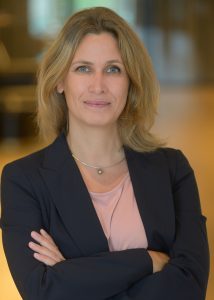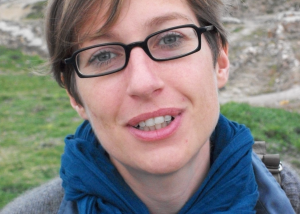The 24th Event of the Vienna Evaluation Network took place on November 17, 2022, 4-5.30pm CET
Topic: Evaluability Assessments and their practical application
by guest speakers Sigrid Breddy & Tonka Eibs (Austrian Development Agency)
This was a HYBRID event: in-person and online.
We thank Médecins sans Frontières (MSF) Vienna for hosting the event.
View or download the slides (PDF) here
Visit the ADA Evaluability Assessment Guidance here
Evaluations can face several challenges impeding the credibility of its results: The design (e.g. the Theory of Change) of an intervention being evaluated is often insufficiently clearly defined; relevant data, such as baseline or monitoring data are not or only partially available; expectations regarding the use and purpose of an evaluation are greatly varying; or the (institutional) context hampers the implementation of an evaluation. This is particularly the case for complex interventions such as multi-dimensional programmes, thematic policies or country strategies. To determine and address potential challenges early enough, evaluability assessments (EAs) are oftentimes used before starting an evaluation in order to make an intervention more evaluable, thereby strengthening the quality and use of the subsequent evaluation by making it more feasible, meaningful and cost-effective.
Recognising the importance and potential of EAs within Austrian development cooperation, the Austrian Development Agency together with the Ministry of Foreign Affairs, the Ministry of Finance, the Ministry for Climate Action and the Development Bank of Austria jointly developed a guidance document on Evaluability Assessments within the overall framework of the Evaluation Policy of the Austrian development cooperation. The guidance document establishes a common understanding and provides a framework and tools for the implementation of EAs, thereby promoting conceptual clarity and practical use of EAs within the Austrian development cooperation. Other development partners and stakeholders are invited to apply – and to provide feedback on the application of – this guidance document as well, to promote learning and continuously enhance our evaluation practice.
The presentation will give an overview of the conceptual framework for EAs as set out in the guidance document on Evaluability Assessment of Austrian development cooperation. To that end, we will set out the process of planning, implementing and using EAs and introduce the use of checklists to assess the evaluability of an intervention by examining the (i) intervention design; (ii) data availability, (iii) stakeholder demand and (iv) institutional context.
The presentation will be followed by a discussion and exchange of experience with/future plans of conducting EAs to assess the evaluability of interventions and enhance the quality of subsequent evaluations.

Sigrid Breddy holds a PhD and an MA in Political Science from Vienna University and an MSc in Development Management from the London School of Economics (LSE). She has worked in multilateral and bilateral development cooperation for over 15 years and has held various leadership and specialist positions in the area of planning, monitoring and evaluation, development finance statistics as well as research and knowledge management, both at
headquarter and country office levels. Sigrid currently serves as global head of Evaluation and Statistics at the Austrian Development Agency (ADA) in Vienna. She has previously worked for UNICEF based in Myanmar, Vietnam and Mozambique, as well as for the European Commission based in Brussels, among others. Sigrid is a staunch advocate for using data- and evidence-based decision-making strategies to strengthen global
development efforts in support of human and child rights.

Tonka Eibs has over 10 years of experience in development cooperation and humanitarian aid. She has worked as a technical advisor for MHPSS (Mental health and Psychosocial Support) and as project/ programme manager with increasing specialization on monitoring and evaluation in different NGOs and International Organisations. She supported interventions in 10 different countries and lived in Mexico, India and Kosovo. In the last 5 years she has been working as evaluation advisor with Doctors Without Borders and the Austrian Development Agency.
WHEN: Thursday, November 17, 2022, 4-5.30pm CET
WHERE: This event was HYBRID: in-person and online.
Physical location: Médecins sans Frontières (MSF), Taborstraße 10
We thank Médecins sans Frontières Vienna for hosting this event. MSF will kindly provide their facilities for the event and for networking afterwards.
The event started with a presentation by the guest speakers. After the presentation, a lively discussion about EV evolved.
